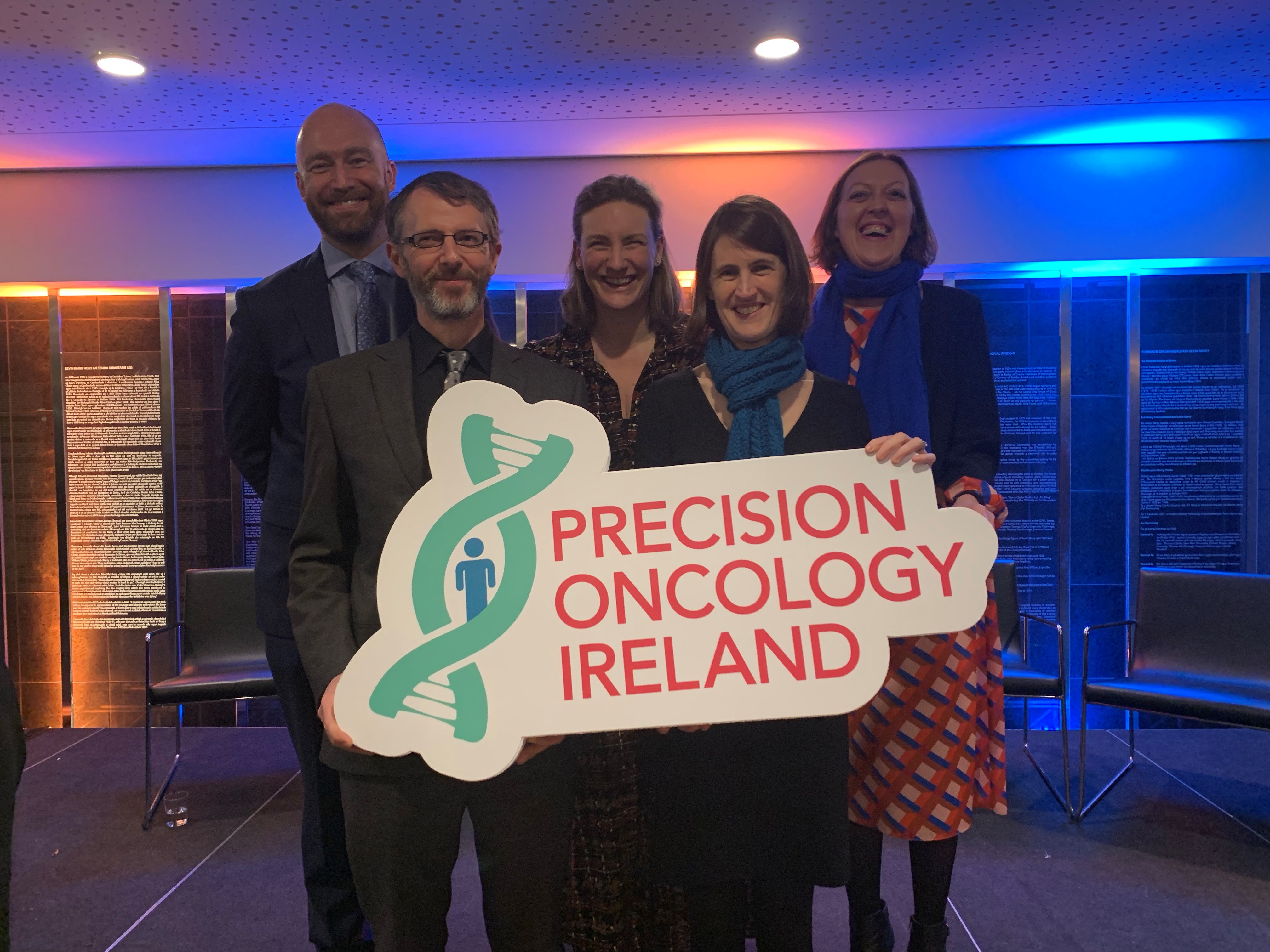- Home
- Research
- CoMH Research & Innovation eBulletin
- Research Workshops
- CoMH Research and Innovation Committee
- Inclusion Health Research Group (IHRG)
- Researcher Spotlight Series
- APC Microbiome Institute
- INFANT
- ASSERT
- Biosciences Imaging Centre
- Centre for Gerontology & Rehabilitation
- Centre for Research in Vascular Biology
- Cork NeuroScience Centre
- Cancer Research @UCC
- HRB Clinical Research Facility Cork
- National Perinatal Epidemiology Centre
- Oral Health Services Research Centre
- ENTO (Ear, Nose, Throat and Oral Research Unit)
- News
- People
- Programmes
- Hospital Partners
- Community Partners
- Jennings Gallery
- Graduate Studies
- Programmes for International (Non-EU) Students
- Interprofessional Learning (IPL)
- ASSERT
- iEd Hub
- Inaugural Professorial Lecture Series
- Philanthropic Lectures
- UCC Academic Health Sciences
- Continuing Professional Development
News
Irish charity, industry and university sectors combine forces to improve cancer patient outcomes as €11.9m SFI research collaboration targets precision oncology

On the 26th November, Minister for Business, Enterprise and Innovation, Heather Humphreys TD, announced an €11.9m research collaboration in the field of precision oncology, which is supported by the Science Foundation Ireland Strategic Partnership Programme.
The initiative is supported by a €5m Government investment through the Science Foundation Ireland Strategic Partnership Programme, matched by a €6.9m investment from the Charity and Industry partners making up the Precision Oncology Ireland Consortium - the first time that researchers, charities and industry have combined forces in this way.
Precision Oncology Ireland is a consortium of five Irish Universities, six Irish Cancer Research Charities, and ten companies aiming to develop new diagnostics and therapeutics for the personalised treatment of cancer.
Precision (or ‘personalised’) medicine uses data about a person’s genes (genomics), along with additional information on their cancer, to understand the unique pathways of a disease or treatment response in that person. With this new science, doctors can prescribe the right treatment in a timely fashion, saving the wasted resources and time our current ‘trial and error’ method incurs, while greatly improving response rates.
Speaking at the launch, the Director of Precision Oncology Ireland, Professor Walter Kolch said: “Precision Oncology Ireland is a vision come true. It unites the top cancer research experts in Ireland, the leading cancer charities, and companies at the cutting edge of diagnostics and drug discovery. We believe that this unique consortium lays out the blueprint for how cancer research and cancer care will look in Ireland in the 21st century.”
“In Precision Oncology Ireland, we will use cutting-edge technologies to generate unique genetic and molecular profiles for each patient’s cancer. Our key competitive advantage lies in the innovative computational methods we use to make sense of these profiles, and decipher what drives each individual cancer. The results of this programme will be better diagnostics, personalised cancer treatment, and faster drug discovery and development.”
Professor Kolch added: “A significant proportion of our funding is down to the generosity of the Irish public in donating and fundraising, via the participation of six of the leading cancer charities in Ireland, the first time they have come together to support a programme of this scale. We want to ensure that their hard work delivers results for cancer patients in Ireland”
Welcoming the initiative, Professor Mark Ferguson, Director General, Science Foundation Ireland and Chief Scientific Adviser to the Government of Ireland, said: “SFI’s Strategic Partnership Programme aims to foster partnerships across academia and industry to address key research questions and enhance the competitiveness of our economy. Ireland has unique and world-leading expertise in precision oncology. This transformative research programme will harness that expertise to enable real progress in personalised medicine for cancer patients, allowing us to take a leadership position in this important area of healthcare.”
The Deputy Director of the programme, Professor William Gallagher, hopes that this programme will allow cancer patients to benefit from research advances at an earlier stage: “We believe that Precision Oncology Ireland will accelerate the development of new diagnostics and therapies for cancer, and allow these advances to reach cancer patients in Ireland earlier. We will also involve patients in this work from the beginning, to ensure that their voice is heard in determining the most relevant research priorities.”
In Ireland, more than 40,000 people are diagnosed with cancer each year. Precision approaches to oncology give hope of improving cancer patients response rates and survival, reducing side-effects from therapy, and shortening hospital stays, balancing out any increased cost to the healthcare system. The National Cancer Strategy (2017-2026) called for the introduction of precision diagnostics and therapeutics into frontline cancer care.
